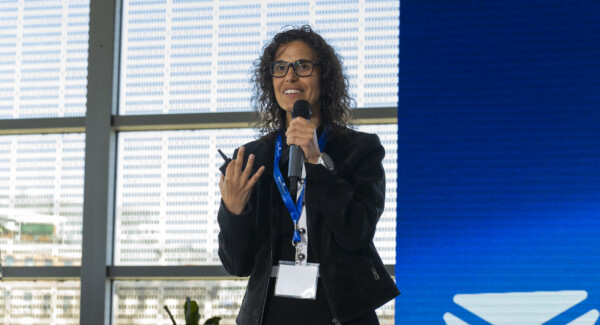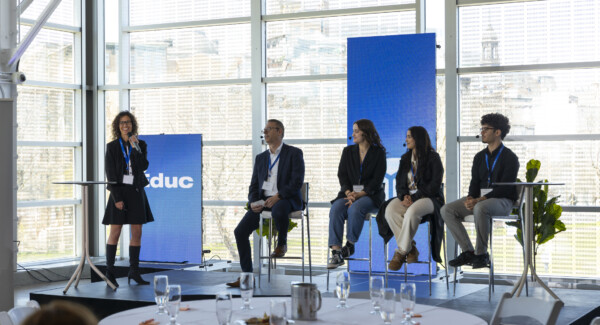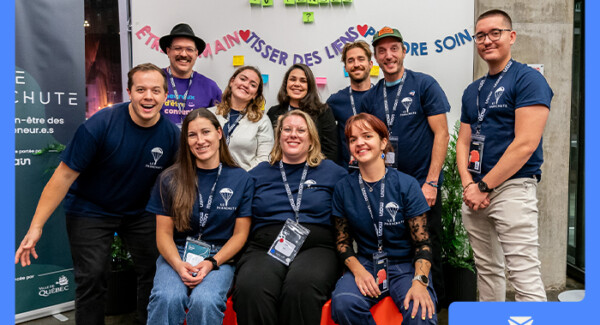Generate Discussions and Engaging in Reflections to Improve Support for the population of Quebec Regarding Alcohol
FAVORIBookmarkMontreal, September 11, 2023 — Éduc’alcool today unveils its fall campaign, which this year is presented in two phases. The objectives are to guide the population of Quebec in understanding its relationship with alcohol, stirring questions and reflections about its own consumption habits, while simultaneously informing and raising awareness about alcohol consumption.
Last fall, Éduc’alcool refocused its approach, inviting people to question their drinking habits and reasons for drinking. The organization is committed to diving even deeper into this initiative to trigger realizations about drinking habits and vulnerabilities towards alcohol. All of this is pursued with an emphasis on compassion, potentially leading to behavioral changes, encouraging the public to choose, for instance, their occasions and contexts for consumption. Éduc’alcool also aims to remove the stigma associated with choosing not to consume alcohol.
Supporting the public in terms of alcohol consumption becomes even more vital for Éduc’alcool, especially considering the societal changes that transpired during the COVID-19 pandemic, which affected many people’s drinking habits. Indeed, according to a recent INSPQ study, individuals who worked or studied from home during the pandemic were inclined to increase their alcohol consumption. Generally, the observed increases were among those who were already drinkers, not among those who were initially abstinent. Although we have moved past the pandemic context, this new work reality has persisted for many.
Unprecedented Strategies to Position at the Heart of Discussions
Éduc’alcool’s campaign will unfold in various ways to generate discussion and become a central part of the discourse. “Every realization begins with a question. Thus, the campaign will revolve around the following tagline: It’s a question of setting your own bar,” says Geneviève Desautels, the Executive Director of Éduc’alcool. She adds, “This is a concise message in tune with the organization’s values that encourages introspection and realizing one’s own responsibility concerning alcohol consumption.”
In this context, Éduc’alcool will notably implement unique tactics and strategies to specifically reach certain audiences. The organization, for the first phase of its campaign, focuses on personal introspection regarding the relationship the population of Quebec has with alcohol. From this viewpoint, Éduc’alcool has partnered with the popular reality show Occupation Double, which enjoys high viewership amongst the youth. To trigger awareness among this target demographic and to generate discussions among families, friends, and colleagues, the campaign will highlight, in an accessible and positive tone, everyday situations experienced in our society regarding alcohol consumption and the deeply ingrained justifications for it.
In addition to the advertising integrations that will be featured throughout the season, Éduc’alcool’s Executive Director, Geneviève Desautels, has also offered training to the production team and the contestants, ensuring everyone becomes conscious of their own alcohol consumption, evaluates their habits, and finds their personal balance. This unprecedented partnership underscores Éduc’alcool’s dedication to being an active participant in the dialogue.
Experts Featured in Informative Capsules
In light of the numerous responses and ongoing questions following the release of the new Canadian Guidelines on Alcohol and Health by the Canadian Centre on Substance Use and Addiction (CCDUS), the organization feels it’s crucial to continue its dedication to educating the public on mindful and moderate alcohol consumption and prevention of misuse. Furthermore, Éduc’alcool is committed to continuously supplying the public with resources on the subject.
The second part of the campaign will focus on the broadcasting of informative content, and the collection and distribution of personal experiences to heighten the public’s awareness of alcohol consumption and its associated risks. Collaborating with specialists renowned in their medical disciplines, a range of topics will be presented in informative segments titled In full transparency. Subjects to be discussed include mental health impacts; social health impacts, featuring contributions from Dr. Youssef Allami, a psychologist, addiction clinician-researcher, and scientific consultant for Éduc’alcool. Physical health effects will also be tackled, with insights from Dr. Anne Julie Frenette, a pharmacist and Clinical Professor at the Faculty of Pharmacy, Université de Montréal. These segments aim to provide a deeper understanding of the impacts of alcohol consumption, all while prompting viewers to further reflect on the issue.
The campaign will be deployed primarily on television, the web and social media.
For more information on the campaign, the public is invited to visit the dedicated page (in French only for the moment): educalcool.qc.ca/se-questionner. It includes a wide range of information based on scientific facts, as well as testimonials and the opportunity to submit your own.





